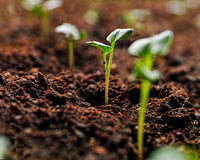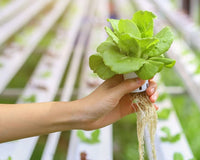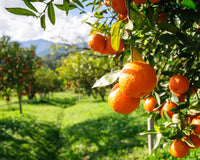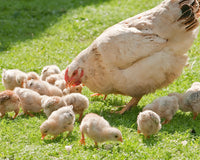There are many ways to care for your garden. Your garden relies on you to be successful. There’s one method that can provide easy support. We're talking about companion planting! Companion planting is growing plants close together with mutual or exclusive benefits.
For some gardeners, you already have the plants needed! Some of these plants include carrots, broccoli, melon, and herbs. By arranging the plants, it removes the usage of pesticide's harsh chemicals. Many herbs, such as basil, garlic, and mint, deter pests from nearby plants.

Companion planting also includes planting flowers nearby. If you plant nectar flowers, it can help attract pollinators. They pollinate your plants and help keep your plants growing! It's helped increase yield in some cases and the plants work together to benefit each other.
Often times, the soil can get damaged and lose nutrients by the way it's planted. This includes not switching your plants to a different spot. Companion planting allows certain crops to replenish the soil and give back nutrients. It also helps prevent weeds from growing since the open areas are minimized.
Companion planting is a simple and effective way to take care of your garden. There are so many fruits, vegetables, and herbs that benefit from companion planting. Optimize your garden to ensure success!
Examples of Companion Planting

Beans: broccoli, carrot, corn, eggplant, kale, marigold, potato, strawberry, radish, rosemary

Carrot: beet, cabbage, chives, lettuce, onion, peas, radish, rosemary, sage, tomato

Corn: cucumber, dill, melon, mint, potato, pumpkin, thyme, squash, strawberry, sunflower

Lettuce: beans, cauliflower, chives, cilantro, corn, garlic, onion, peas, radish, scallion

Melon: catnip, cauliflower, corn, leeks, lettuce, marigold, nasturtium, pumpkin, radish, squash

Onion: beet, broccoli, Brussel sprout, chamomile, carrot, leeks, lettuce, pepper, strawberry, tomato

Potato: basil, cabbage, calendula, cauliflower, cilantro, eggplant, garlic, kale, marigold, peas

Pumpkin: beans, corn, lavender, marigold, melon, nasturtium, oregano, radish, squash, sunflower

Radish: beans, carrot, cucumber, dill, lettuce, melon, nasturtium, onion, peas, pepper

Tomato: asparagus, basil, clover, dill, lettuce, marigold, mint, oregano, parsley, thyme






